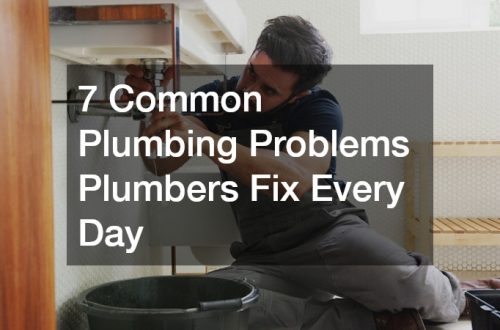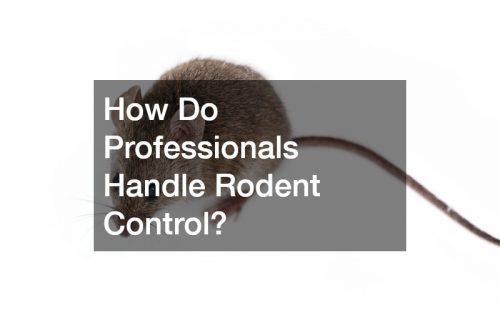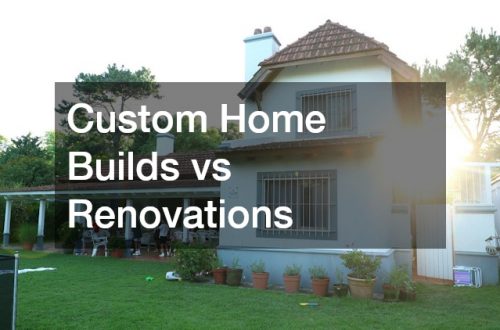
As a homeowner, tackling a home improvement inspection is essential before moving into a new home, even if you’re experienced when it comes to owning real estate. When you have a home improvement checklist handy, even before you move into a home, you can proceed knowing your house is safe, secure, and properly configured for you and your entire household. The more familiar you are with the process of inspecting a home and updating it before moving in, the more streamlined your move is likely to feel.
1. A Security Inspection
If you have plans to conduct a thorough home improvement checklist before you move into a new house you’ll want to first include a security inspection. From investing in custom exterior shutters to purchasing a brand-new security system or fence around the home, there are quite a few different solutions to consider if you’re concerned about the level of security your new home has at the time of your move. If you’re thinking of investing in a new security system, you’ll want to learn more about your options to determine if a full-service package is right for you with 24/7 monitoring, or if you’re more likely to enjoy investing in an à la carte solution that’s custom-designed for your home.
Taking the time to invest in home security solutions before you move into a new residence isn’t just a way to protect your peace of mind, but it can significantly deter burglars and thieves from choosing your home as a potential target. Home security solutions today include a wide range of indoor, outdoor, waterproof, and even thermal cameras. With the use of various camera applications and mobile smartphones, it’s also now easier than ever to manage your security system remotely so long as you have a working, secured, wireless internet connection.
2. Bathroom and Plumbing Inspection

When you’re making a home improvement checklist that’s important to you, and you want to ensure your home is in proper working order before moving in, you’ll need to spend a bit of time focusing on your home’s bathrooms and current plumbing system. Inspecting your bathroom’s plumbing and fixtures can help you determine if you need new low-pressure toilets, a brand-new sewer line, or even a custom shower door.
If you’re inexperienced when it comes to working on bathrooms and plumbing, you’ll likely want to find a local plumbing company or contractor you can trust to assist with any inspections you have in mind. Certified and licensed plumbers are well-versed in working with a wide range of residential plumbing fixtures and solutions. They can also help you determine when the time is right for you to begin shopping around for new custom fixtures and solutions for energy efficiency and water conservation purposes.
3. Fire Safety Review
Conducting a fire safety review of any home you’re planning to move into is one of the most important aspects of a home improvement checklist, even if you believe the house to be fully fireproofed and prepared with the right equipment. If your new home is outdated, recently built, or includes a custom fireplace mantel, you may want to thoroughly check detectors, chimneys, and other potential risks ahead of time to ensure your home is as safe as possible before settling in with your entire family. If you’re unsure of how to go about conducting a complete fire safety inspection, you can work with fireplace experts and specialists near you or you can work with a fire safety company or a home inspector you trust.
Inspecting the fireplace, chimney, smoke detectors, and electrical wiring of any home you’re moving into is always essential. Protecting your home from a potential fire will reduce the risk of putting yourself and your family at risk, regardless of how you use your fireplace or what lifestyle you live. Setting a schedule in place to routinely inspect your fire safety gear and to change the batteries in your smoke detectors can also help you when it comes to fire safety and prevention in a new home you’re moving into at the time.
4. Evaluation of the Home’s Electrical System

Anyone genuinely interested in making a home improvement checklist should not leave out an evaluation of the home’s electrical wiring system. Inspecting the electrical system of any home you’re moving into will allow you to learn more about the existing setup in place, the condition of the current wiring, and whether it’s time for you to rewire any of the rooms in the home itself. If you want to evaluate the condition of the electrical wiring in the home you’re moving into before doing so, turn to an electrical wiring company or licensed electrician near you who specializes in residential electrical work.
While you might be tempted to inspect your home’s electrical wiring and its electrical system alone, this is never recommended, due to the inherent risk of potential shock or injury anytime you work with electricity. Hiring a professional electrician is a way to do so knowing you’re working with a licensed and certified professional who is well-versed in various electrical components and wiring configurations. If your goal is to minimize the risk of potential damage to the internal wiring structure of your home while mitigating risks associated with electrical injuries, you should always seek to find a professional electrical wiring company or electrician to help.
5. Pest Control
When it comes to moving into a new home, one of the most important elements of doing so that you’ll want to remember involves pest control. Anytime you’re in the process of writing or making a home improvement checklist that matters to you before moving into a new home, you won’t want to forget tending to pest control needs, especially if the home you’re moving into has been sitting empty on the market for an extended time. Pest control is crucial before settling into a home in an area where poisonous snakes, spiders, termites, and even cockroaches are prevalent.
One way to handle pest issues or risks head-on before you move into a home you’ve recently purchased is to do so by hiring a professional and trusted pest control company. Hiring a pest control company is a way for you to discover the types of pests you’re most likely to come up against once you’re settled into your house. Pest control experts who specialize in regional pests can also help facilitate preventative maintenance solutions and treatments for any pests you discover upon assuming ownership of the new home or property.
6. Window and Siding Inspection
Whether you want to learn more about the process of architectural glass installation for your home or you think it’s time to update your house’s siding, working with the right company or contractor is a major decision you’ll need to make. Finding a local window and siding contractor is a way for you to conduct thorough inspections of the exterior of your home prior to moving in, which is always recommended. A window and siding inspection will not only help pinpoint cracks, openings, and insulation concerns, but it’s also a way for you to determine if basic repairs or complete replacement windows and siding may be necessary.
7. Roofing Inspection

Moving into a home is a serious step, especially if you’re doing so as a first-time homeowner. Before moving into any new home, big or small, you’ll want to work with a local roofing contractor or gutter companies near you to conduct a proper roofing inspection. Roofing and gutter inspections can help mitigate potential repair jobs and replacement needs, especially if your roof is still in good condition when you move in and assume ownership of the home. When you’re working with a professional roofer or roofing crew, you can also learn more about the proper maintenance of your roof based on its materials and the climate you live in.
Even if your new home has a relatively modern roof, a roof inspection is still recommended at least once a year. The more the natural elements your home’s roof is exposed to, such as rain, snow, and natural disasters, the more frequently you should conduct professional inspections, as this will minimize long-term and permanent structural damage to the home.
8. Basement Assessment
If your new home has a basement, one of the most vital items to add to a home improvement inspection checklist is a basement assessment. The basement of your home may be used for a variety of reasons, from storage to entertainment and sleeping, depending on the layout of your home and the local regulations in place. Before moving into any new home or residence, you’ll want to conduct an inspection of the house’s basement to determine if it requires any more work or basement foundation repairs.
Taking time to inspect any home you’re planning to move into if it has a basement is imperative, especially if you live in an area that is prone to heavy rainfall or has a traditionally wet climate. Inspecting a home’s basement and its foundation from the interior and exterior is also a way to determine the current condition of the home. The more thorough the inspection of the foundation and basement of a home area, the easier it’ll be for you to determine if you’ll need to invest in a new foundation in the next few years.
9. Garage Door Inspection

If you’re in need of a new door install job for your home’s garage, you may not want to attempt to replace and install a brand-new door yourself, especially when it comes to heavy machinery and remote-controlled systems. Anytime you’re thinking of investing in a new garage door, you can do so with ease by working with local garage door companies in your city or town. When you work with a garage door expert near you, it’s much easier to conduct inspections and learn everything there is to know about garage door solutions that might be right for your home on the market today.
A garage door installation professional will conduct a thorough inspection of your garage and its door to determine the condition and whether it’s time for part replacements or a complete upgrade. If you’re in the market for a new garage door, you can learn more about remote-controlled options, modern technology used in state-of-the-art garage doors, and even insulation factors before settling on a door that’s ideal for your home’s garage. By working with the right garage door installation expert, you’ll likely feel much more educated and informed once you need to make a purchase.
10. Gate and Fencing Review
If you’re moving into a new home that has an automatic gate or existing fencing, you’ll want to inspect it beforehand. An inspection of any existing gates or fences can help learn more about the materials that were used during construction and whether or not the fence is still operable from the inside and out. Learning more about the exterior fencing that’s included with any property you bid on or purchase is vital before you move in, especially if a fence is a must-have for you.
For those who are new to living in a home of their own or working with fences, hiring a professional who specializes in the installation of fencing is highly recommended. Fence and gate installers can help inspect existing fencing while providing guidance when it comes to purchasing new materials or replacing old, worn-out, and broken-down fences that are already on your property. Even if you have a limited budget, you can likely find a fencing solution that works for you when you choose a fence installer who is reputable and credible near you.
When you’re making a home improvement checklist before moving into a new home, there are many different areas and facets you’ll want to pay attention to for protection and security purposes. The more familiar you are with the process of investing in a home and maintaining it, the easier it will be for you to create a home improvement checklist that works for you. With the right resources and professionals near you, you’ll find it much easier to settle into your new home knowing you’re doing so in a safe, protected, and welcoming environment.




